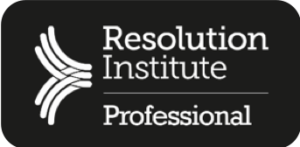In a recent Family Law case, a mother was permitted to relocate from Sydney to Perth with the child. The father opposed the relocation on the basis that it will adversely impact his meaningful relationship with the child – the Independent Children’s Lawyer (ICL) does not support the relocation – the child has a close relationship with the paternal family.
He appealed and was not successful (and was ordered to pay over $16,000 in costs). He has other children to other mothers and there were allegations of domestic violence and meth use by him. The judge said “the mother is found to be the parent with whom the child has the strongest and most reliant, confiding and emotionally attuned relationship” It’s a long way from Sydney to Perth …
If life is stressful and drugs seem to be a good choice at the time – think again: what is best for your children?
In another case
In a 2018 Family Court case, The mother said she had never caused the children to feel “caught in the middle” of the parental conflict, but she clearly has, the judge said. Due to the children’s constant exposure to the denigration of the father by her, they now believe their family is split and there are two opposing teams. The children perceive they and the mother are one team and the father is the other. The split is so bad that the second child feels the mother would regard him as a traitor even if he merely expressed his affection for the father and his desire to spend some time with him.
The Family Consultant said the children are under enormous psychological pressure to reject the father. Such expectation is confusing for them because they love the father and wish to maintain their relationships with him. As the Family Consultant explained, the children may sustain psychological damage having to manage such stress by having to agree with the mother. They may then feel they are to blame for the father’s elimination from their lives, which is damaging to their self-esteem and may cause psychological ill-health in the form of anxiety and depression. It may deleteriously affect their formation of adult relationships throughout the remainder of their lives.
The Family Consultant said if the mother has aligned the children against the father to satisfy her own emotional needs rather than to protect them from any risk of harm then her behaviour amounts to “significant psychological abuse”.
The mother was not acting protectively of the children to avoid their exposure to risks of harm posed by the father, since there are no credible risks of harm posed by him. She was probably putting the children’s best interests in maintaining loving relationships with both parents lower than her own interests (in exacting revenge).
The children do need protection from the “abuse” to which they are subjected by the mother, in the form of her alignment of them against the father, which has caused and is liable to continue causing them serious psychological harm.
Are you fooling yourself that you are ‘protecting’ your kids when you’re actually getting revenge on your ex?
Here’s a summary of a recent case in the Family Court:
The child lives with the mother, and, up until the hearing, spent supervised time with the father.
The father sought an order for unsupervised time.
The father had spent approximately 21 hours of supervised time with the child without any major difficulties. The Family Report Writer recommended that it would be appropriate to move to unsupervised time and an increase in unsupervised time.
The father’s application for unsupervised time was opposed by the mother because of the father’s history of family violence, and the risk of the child being neglected in the father’s care due to the father having a history of dependency on drugs and alcohol, especially in stressful situations. Also, the limited experience the father has had in caring for the child by himself.
The judge accepted the mother’s submission that there were real risks that needed to be taken into account in deciding whether or not unsupervised time for the child with the father would be in the child’s best interests.
The judge balanced the risk factors identified by the mother, with the benefits to the child with spending time with the father unsupervised.
His Honour came to the view that the risk factors could be managed and that there was an undoubted benefit for the child to spend unsupervised time with her father.

